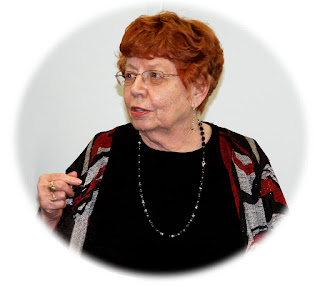But first I’d like to mention her latest
mystery, Raging Water from Mundania Press.
Raging
Water
Deputy
Tempe Crabtree’s investigation of the murder of two close friends is
complicated when relentless rain turns Bear Creek into a raging river. Homes
are inundated and a mud slide blocks the only road out of Bear Creek stranding
many—including the murderer.
Contest: The person who
leaves comments on the most blogs will have his/her name used for a character
in my next book—can choose if you want it in a Deputy Tempe Crabtree mystery or
a Rocky Bluff P.D. crime novel.
Meredith also writes as F. M.
Meredith, and her latest Rocky Bluff P.D. crime novel is No Bells, the fourth from
Oak Tree Press.
Marilyn has taught for Writers Digest
School for ten years and serves as a judge in several writing contests. Marilyn
is a member of EPIC, three chapters of Sisters in Crime, Mystery Writers of
America, and on the board of the Public Safety Writers of America. Visit her at
http://fictionforyou.com
and follow her blog at http://marilymeredith.blogspot.com/
Marilyn borrows a lot from where she
lives in the Southern Sierra for the town of Bear Creek and the surrounding
area.
NAMING
YOUR CHARACTERS
By Marilyn
Meredith
For
me, this is one of the most important aspects of the creation of your
characters. The name should in some way fit the character’s personality.
An
example: If you have a strong, muscular hero you wouldn’t want to give him a
weak sounding name like Lauren or Percy. You may know some body-builder types
with those names, but for your book pick a name that will evoke the sense of
the character for the reader.
Make
sure that the characters in your book don’t all have names that begin with the
same letter, rhyme, or all the same number of syllables. You never want to
confuse your characters.
If
you are writing a fantasy or sci-fi and your making up names, be sure they are
able to be pronounced easily. If the reader can’t say the name in his/her mind,
they’ll have trouble remembering who each person is. I’ve been reading books by
Scandanavian authors and I’ve had a hard time keeping track of who is who
because of the names that I can’t pronounce.
Having
said what I did about made-up names, don’t give everyone simple names like
Mary, John, Bill, Joe, Jane. If a name is a bit unusual, the reader will have
an easier time remembering it. Of course there are exceptions—Jack Reacher for
instance. Jack is a strong name even though it’s simple—but the character is
mainly known as Reacher.
When
I first started submitting my Deputy Tempe Crabtree series, I had an agent tell
me Tempe was too unusual of a name and to come up with something else.
Obviously, I didn’t follow her advice. Tempe Crabtree was my
great-grandmother’s name and I thought it worked for as a Native American.
Another prominent Indian character in this series is Nick Two John.
Though
some young mothers are using old-fashioned names for their children, others are
making up names. One of my granddaughters used syllables from her mother’s and
mother-in-law’s first names for an original name for her baby. You might even
try that if you can’t come up with the exact name you want.
If
you are writing an historical novel, be sure to check and see if the names you
want were in use during that time period.
Where
to find names? The Internet has a wealth of names. You can find names from any
country and popular baby names.
What
I like to do is keep graduation programs and use the names I find there—of
course I mix up first and last names. Other writers I know use names they’ve
found in obituaries.
Keep
track of what you’ve named your minor characters so that you don’t give them a
different name later on in the book. (Yes, I’ve done that.)
I
hope this has will be helpful to you when you start naming the characters that
you’ve created. And readers, perhaps this has given you some insight into how
difficult the author’s task is when it comes to naming their creations.
Good luck to everyone who enters Marilyn's contest. And a big thank-you to Marilyn for visiting today.
Cheers,
Jacke


